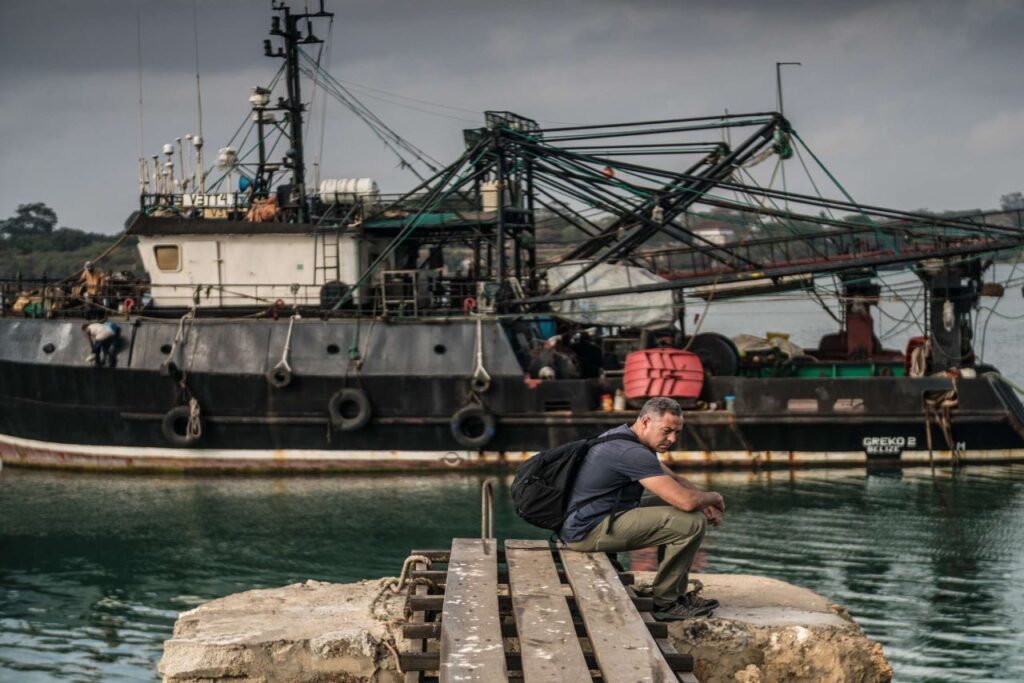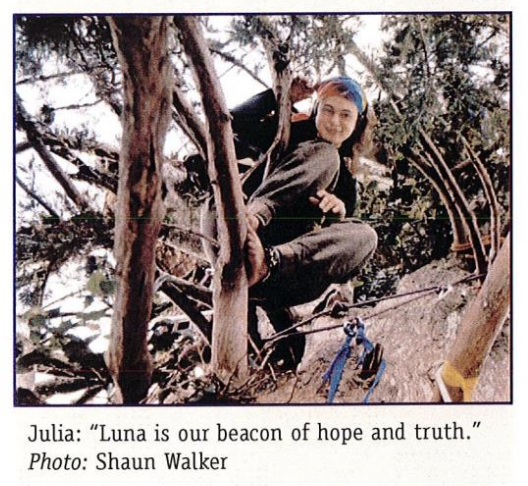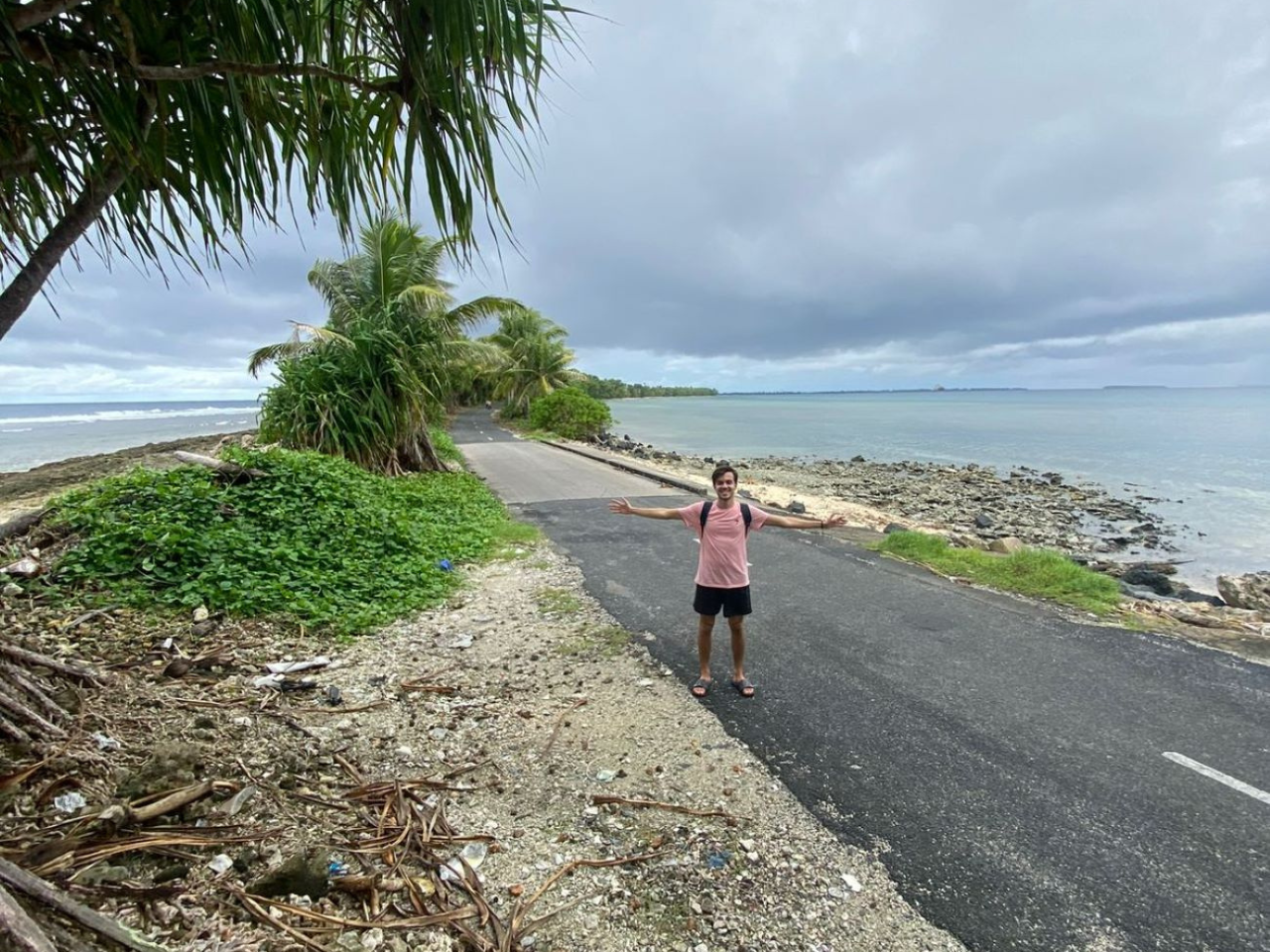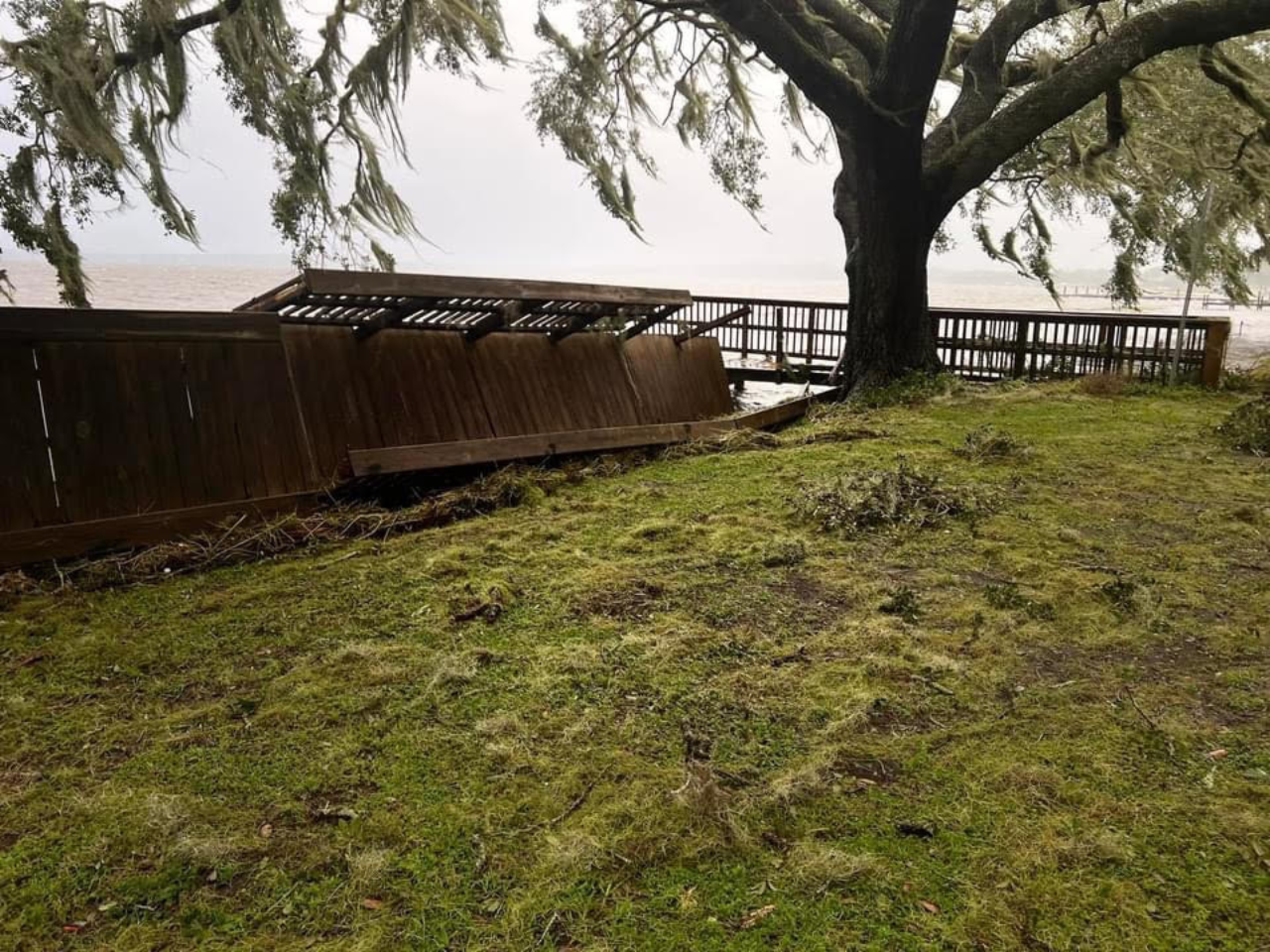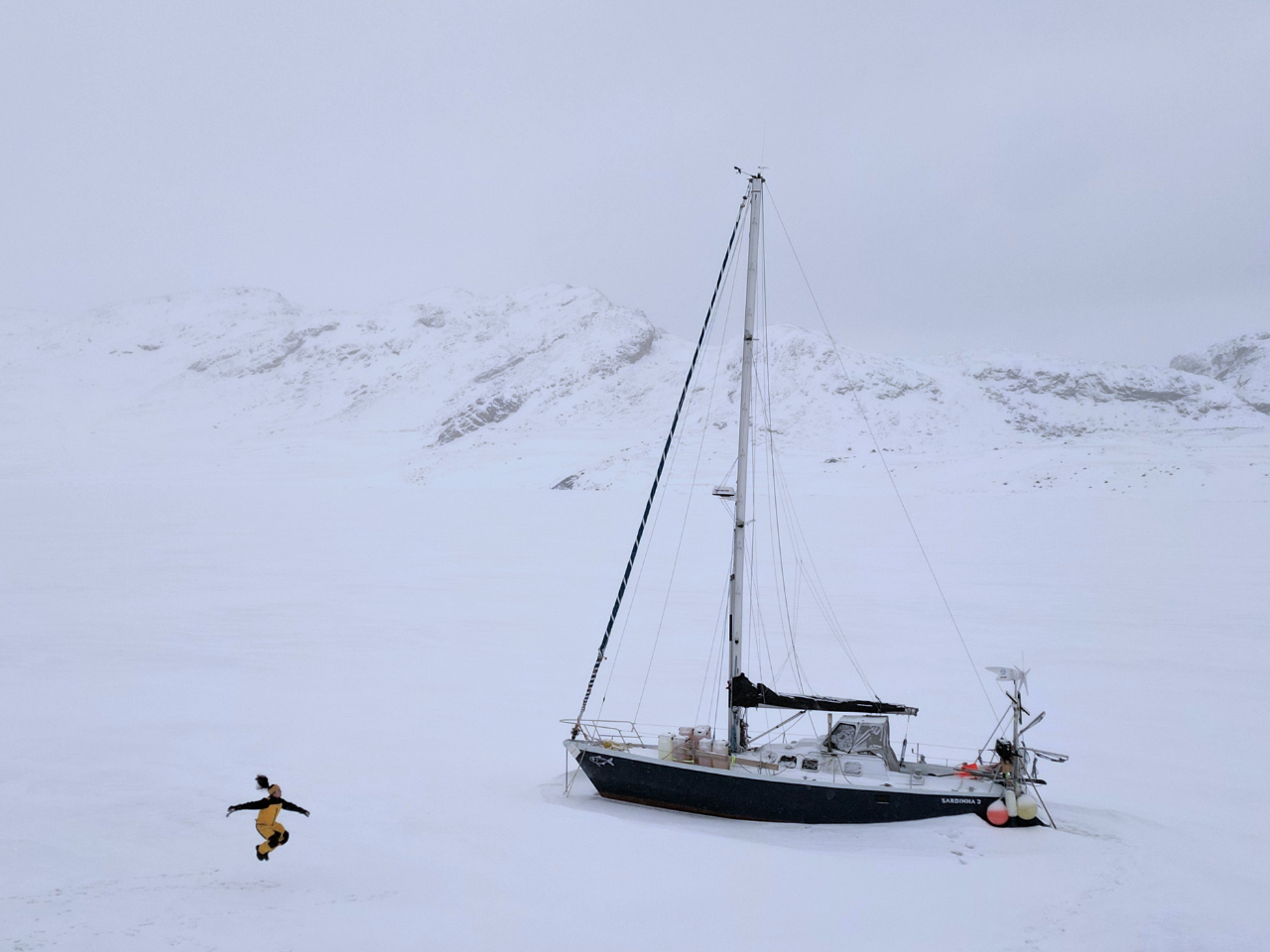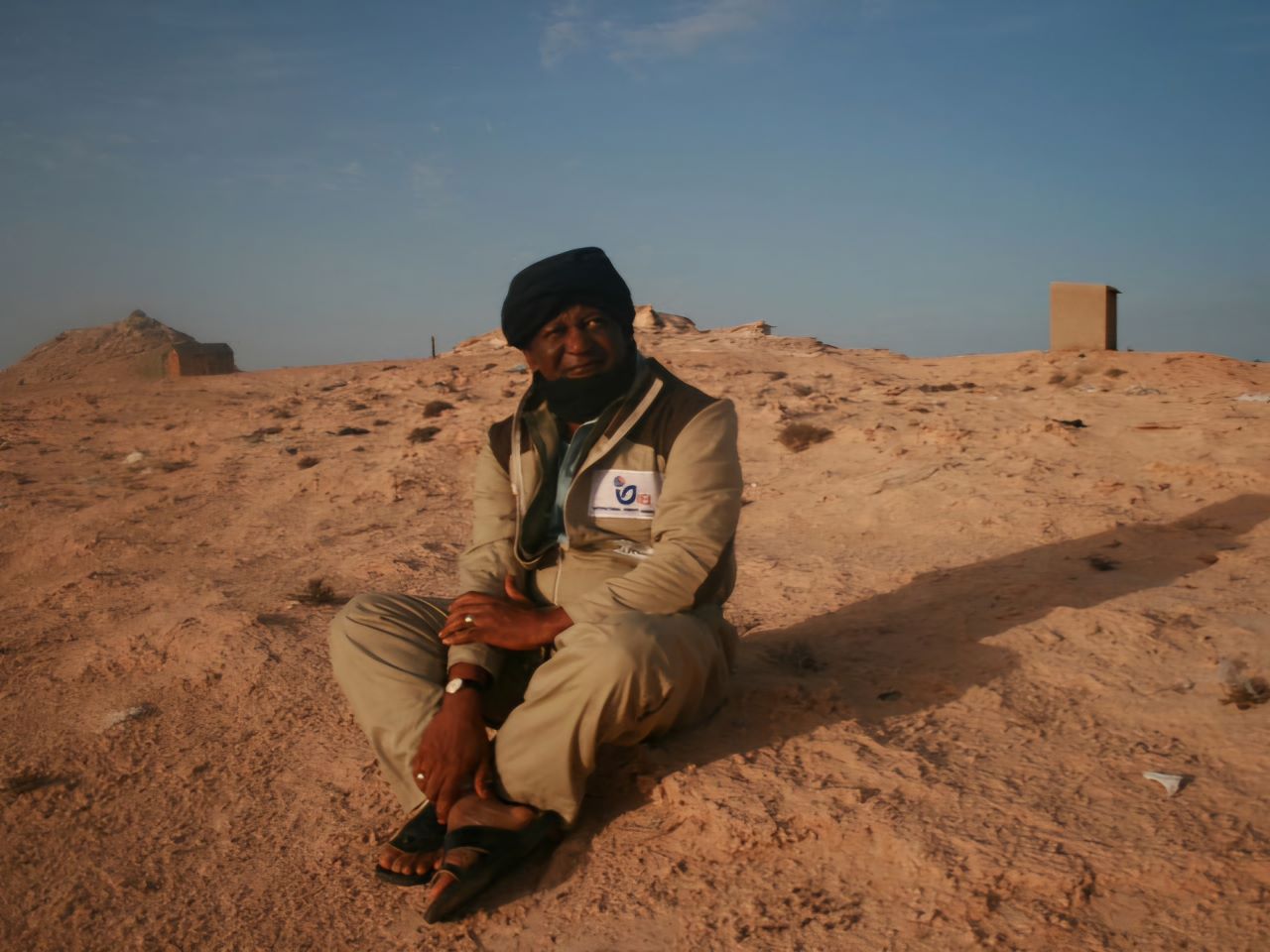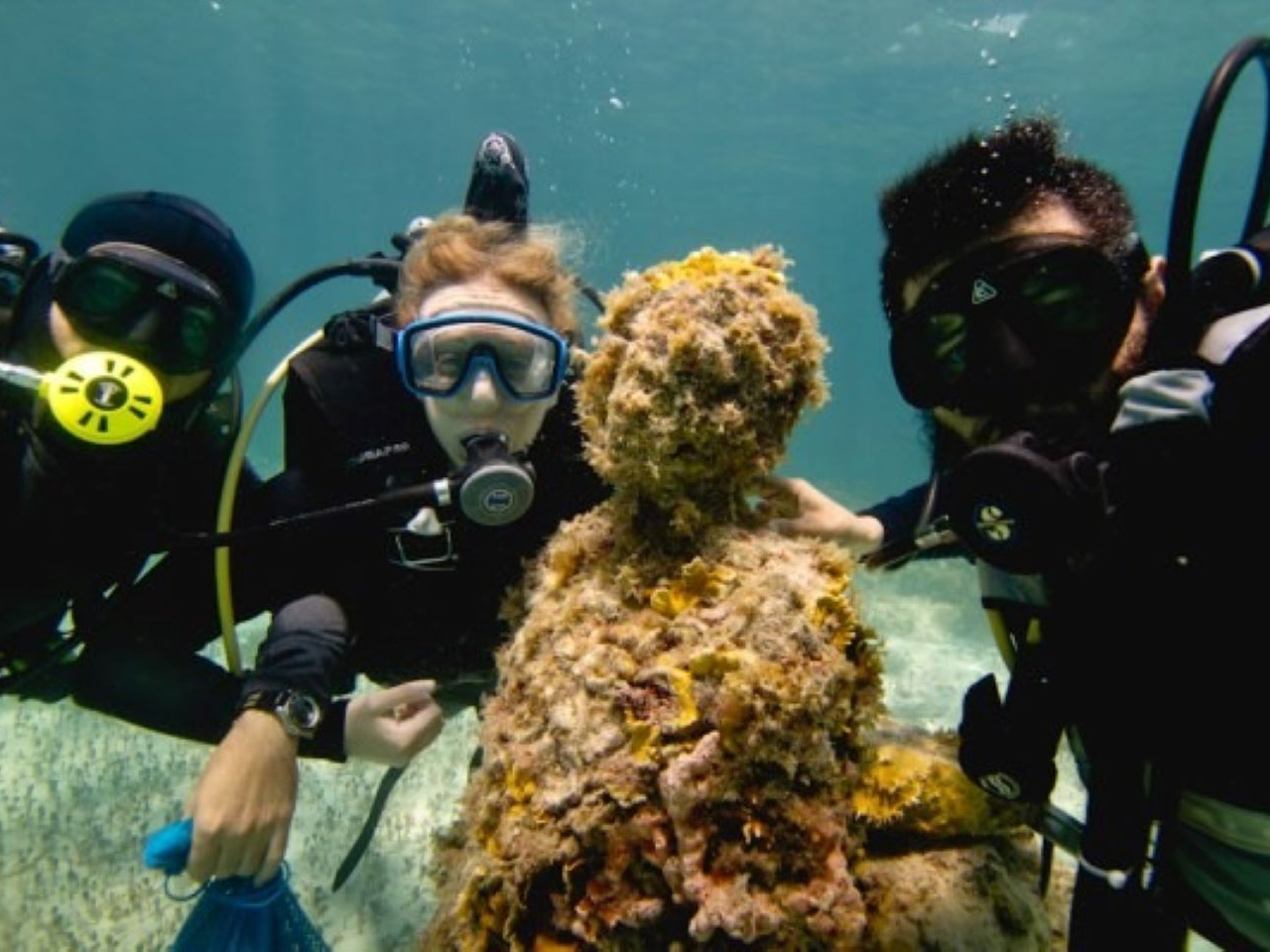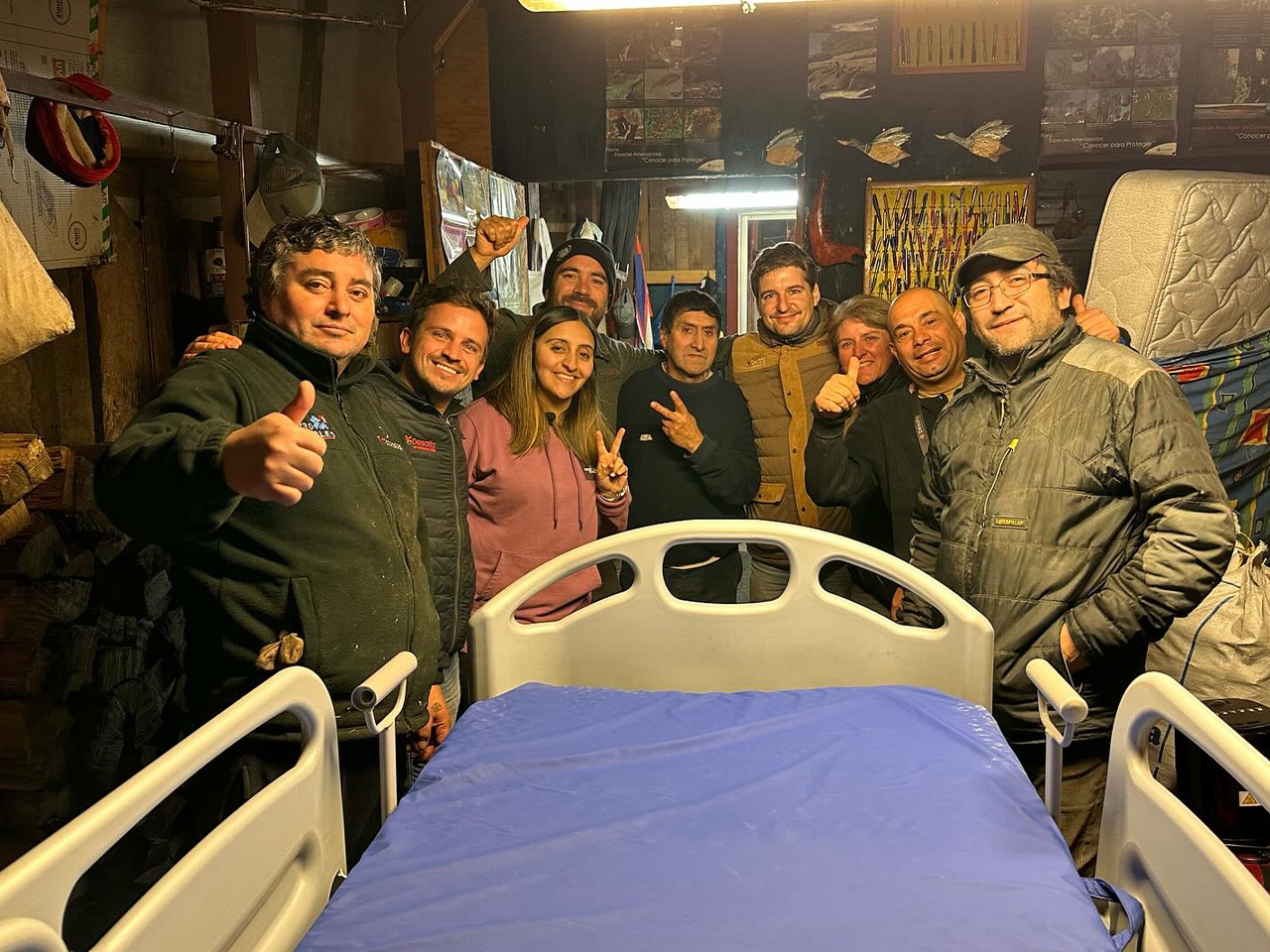Outlaw Ocean Project investigates murder and abuse on Chinese squid vessels
The captain ordered the crew to wrap his corpse in a blanket and place it in the squid freezer where it blackened. A few days later, they placed his body in a wooden coffin, attached weights to it, and pushed him into the sea.
- 2 years ago
January 3, 2024
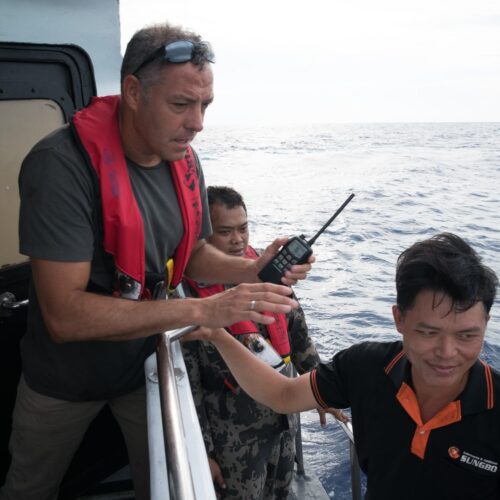
NEW YORK, United States ꟷ As a former journalist for the New York Times and the Executive Director of the D.C. based Outlaw Ocean Project, I spent 40 months investigating boat thieves, interviewing mercenaries, and chasing poaching fishing boats. It all began when I took a job on a boat to clear my head. Onboard, I witnessed and spoke with naval workers in Singapore. They told me astounding stories of abuse and mistreatment of workers. It left me stunned.
Wanting to know more about these bloody stories on the sea, I convinced my New York Times editor to let me go investigate. The victims endured abuse so far from the world, they became invisible. I, however, got to see these crimes up close.
Chasing down Chinese vessels, we communicated with messages in bottles
Wanting to reveal the mysteries of abuse taking place at sea, I faced a complex issue. It seemed nearly impossible to access the boats, so I formulated strategies to collect information and testimony. I set my sights on researching fleets from Thailand, South Korea, Taiwan, Spain, and most recently China.
The latter is so enormous in size and a superpower of food production globally. Chinese vessels boasted much more brutal conditions. Prone to illegal fishing, these boats openly invaded the waters of Argentina, Ecuador, and Peru. We made the decision to begin investigating near the Falkland Islands, the Galapagos, and the South Korean border.
Each point swarmed with Chinese ships, and it took us weeks to reach them in adverse conditions. When we neared, we called the Chinese captians by radio. Talking to and interviewing them from bridge to bridge, and ship to ship, our research on Chinese fishing vessels began.
On other occasions, we took a smaller boat and approached the Chinese ship where we could be seen. Talking to the captain by walkie talkie, we offered greetings and cordial conversation. I remember asking, “Is there any chance we can join you? We have gifts – fresh fruits, vegetables, and wheat.” Grateful for our offer, the captain invited us onboard. Suddenly, we became first-class spectators on a Chinese fishing ship. Sitting at their tables, we ate together, toured the rooms and spaces, and talked with workers.
Our final strategy included chasing the ship in a small boat, going so fast it became dizzying. Adrenaline pumped through me as we dangerously caught up. Near the boats, we threw plastic bottles to them, filled with rice and messages, a pen, cigarettes, and candy. They wrote back about the conditions and included telephone numbers of family members, whom we called to investigate further.
They put his body in a coffin, weighted it, and tossed him in the sea
I can never forget the story of Fadhil Badil, a 25-year-old from Indonesia who worked on a Chinese squid vessel called Wei Yu 18, about 285 miles off the coast of Peru. Fadhil’s companion told us Fadhil grew tired of begging the foreman to send him to the coast for medical attention. He had experienced increasing thirst until he went into seizures. Too tired to sit up and unable to urinate, Fadhil vomited up everything he ate or drank.
His feet swelled until they looked like they belonged to an elephant. The foreman gave him ibuprofen and told him he couldn’t leave until his contract was up. Lying on his bed, Fadhil whispered to his companion Ramadhan Sugandhi, “May my body reach my parents.” On September 26, 2019, after being ill for a month, Fadhil died.
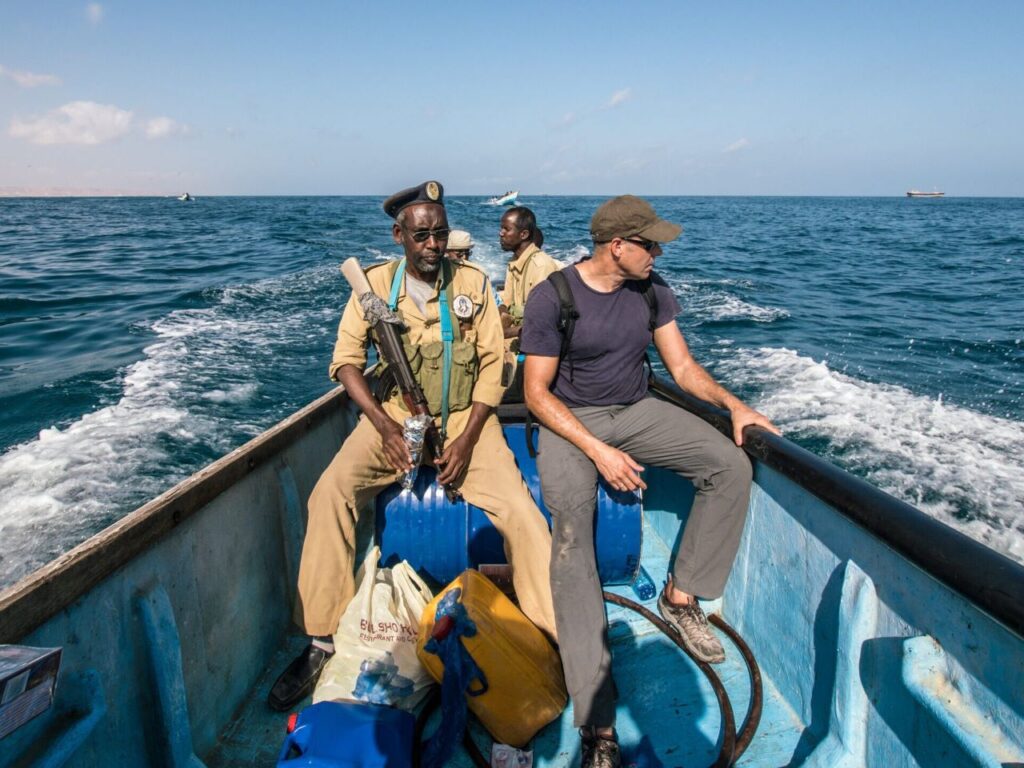
The captain ordered the crew to wrap his corpse in a blanket and place it in the squid freezer where it blackened. A few days later, they placed his body in a wooden coffin, attached weights to it, and pushed him into the sea. In a heartbreaking tale, Fadhil likely died of a disease called beriberi – which kills untold numbers of naval workers on distant fishing vessels every year.
Like Fadhil, many crew members are prohibited from leaving the ships. On China’s fleet of squid vessels, the workers often spend two years at sea without internet or phone, isolated from friends and family. They work 15 hour days six days a week. Crew quarters remain cramped with 10 men at a time in rooms build for half that many. Injuries, malnutrition, illness, and beatings are commonplace.
A worker pleads for help, research reveals horrible living conditions
Aboard the Ocean Warrior in the South Atlantic, 1,000 miles north of the Falkland Islands, an 18-year-old sailor on a Chinese squid vessel crouched nervously in a dark hallway. A “keeper” who watched over the men was called to other tasks, allowing this worker to whisper his plea. “They took our passports,” he said. “They won’t give them back.” After a moment, he stopped talking and began typing into his cell phone for fear of being overheard.
“Can you take us to the embassy in Argentina,” he begged. “I can’t reveal too much at this time since I still need to work on the ship.” The conversation abruptly ended when the keeper returned. His story was one of many.
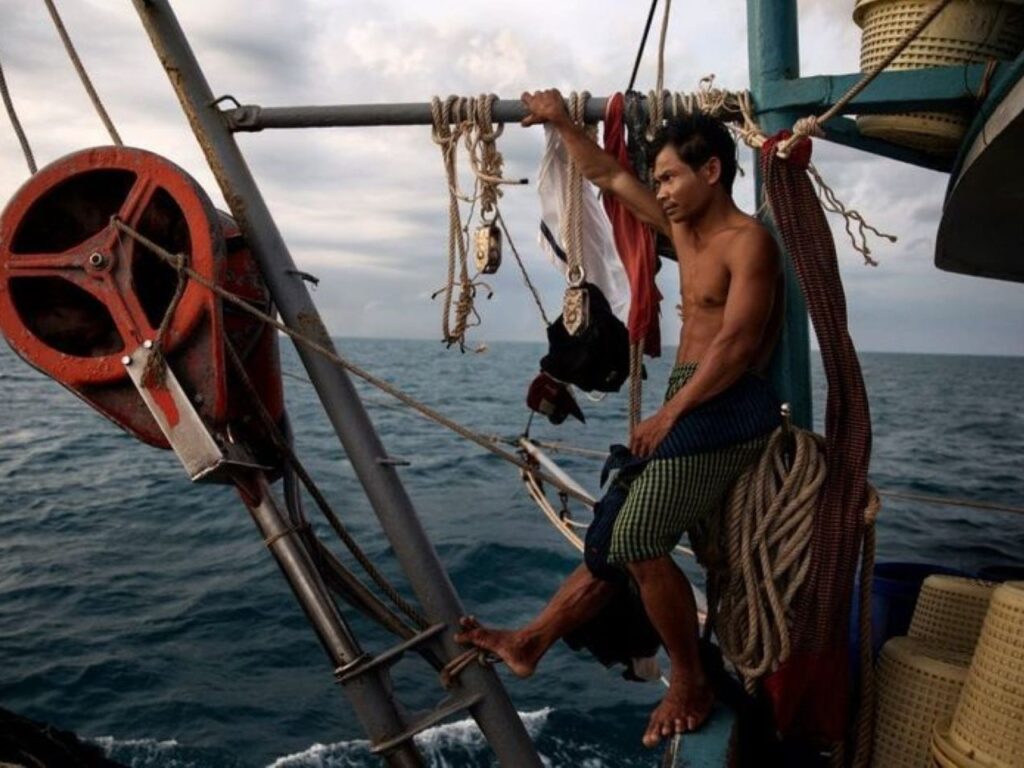
A 28-year-old first-time sailor earned $883 per month. If he or a co-worker missed a day of work due to illness or injury, their employer withheld three days’ pay. “It is impossible to be happy,” he said. “We don’t care at all because we don’t want to be here, but we are forced to stay.”
On the Lu Lao Yuan Yu 010, a Chinese trawler in the North Atlantic near Gambia, a Senegalese sailor named Lamin Jarju showed me his room. A nest of crumpled newspapers, clothes, and blankets littered the space, two levels under the bridge. When I entered, a rat darted from underneath a tarp. Several members of the crew shared the room on the overcrowded ship. “They treat us like dogs,” Jarju said.
The story repeated on a Chinese trawler called Victory 205 where African sailors slept eight men to a space meant for two. The dangerously stuffy four-foot-high steel compartment above the engine room where they slept felt like an oven. The vapors lingered in the inhumane metal box. Close to the deck, when the waves passed, the shelter flooded and outlets sparked, nearly setting the mattress on fire.
A day in the life on a Chinese squid vessel
About 350 miles west of the Galapagos Islands in the Pacific Ocean, I got an up-close look at conditions aboard a Chinese squid vessel. On deck, both sides of the boat had 300 or more light bulbs the size of bowling balls, hanging on racks to attract squid. At night, with the bulbs lit, the effect was blinding. It made the surrounding darkness feel harsh, timeless, and otherworldly. The glow of a squid boat with its lights on can be seen with the naked eye more than 100 miles away.
Dozens of fishing lines stretched into the water under the lights, each with a special squid hook known as a jig. When a squid hooked to a line, the reel automatically flipped it onto a metal rack. The sailors threw the squid into plastic baskets for later sorting. Often these baskets overflowed, and the deck filled with squid until it covered half the calf of a standing person, leaving little room to walk.
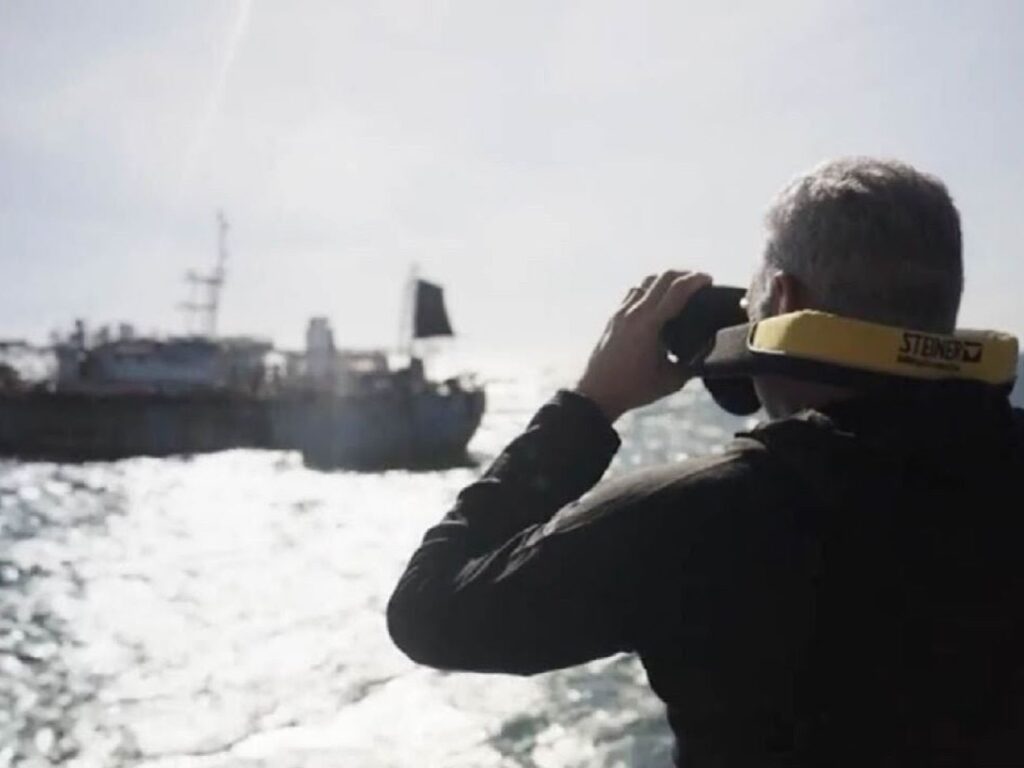
The squid turned translucent in their final moments, draining the pale red dye from their skin. Often, they made a final hiss or cough. The smell and stains remained virtually impossible to wash out of clothing. Larger ships had laundry machines, but on smaller ones, the crew tied their dirty clothing together to form a long rope. The rope extended up to 20 feet, which they dragged for hours in the sea behind the ship.
When not fishing, the crew weighed, measured, washed, sorted, gutted, and packaged the squid in metal trays for freezing and bagging. They prepared the bait by separating the tongues and cutting the soft tissue inside the beaks. Below deck, they had daily responsibilities too. They swept hallways, flushed out toilets, and scrubbed showers.
Investigations lead to shock, panic, and sadness, but the work continues
Throughout the investigations, we learned that Chinese officers regularly beat workers. Those beatings at times turned fatal. In March 2021, Chinese squid vessel Zhen Fa 7 unloaded Daniel Aritonang at the port of Montevideo.
Barely conscious, Daniel’s body revealed bruises, black eyes, and swollen feet from malnutrition. Ropes tied around his neck left marks and he died in the hospital. At the same port, 28 Africans fled from the Chinese squid boat Jia De 1. One man described being shackled while not working, the marks still visible around his ankles.
Throughout my investigations I felt shocked and panicked at times. A deep sadness and desolation often set in, wishing I could do more. When I see cases like this, I want to rescue people, but I cannot. Journalists, lawyers, advocates, and the government should approach these companies. They work cheap and fast, using terrible practices, and they benefit. The only way to make change is to pressure the industry.
Not doing so results in death, slavery, and abuse. This kind of practice should have stopped two centuries ago, yet it continues. There is also an environmental impact as these ships empty the ocean of resources. The cases go on and on and they do not stop, but I keep trying every day.

